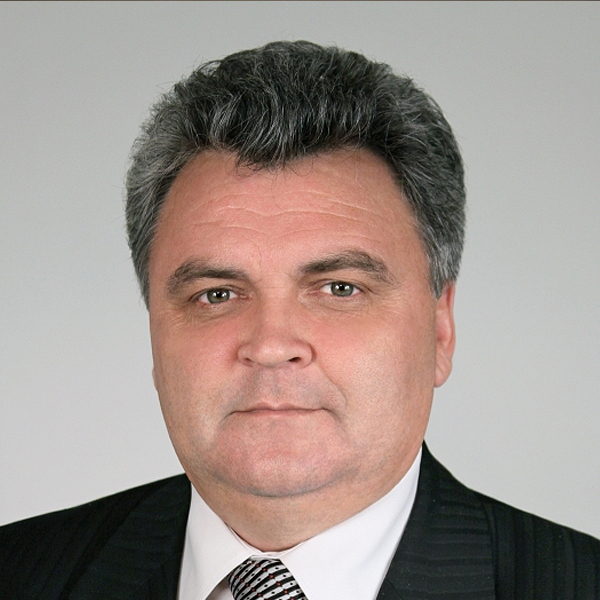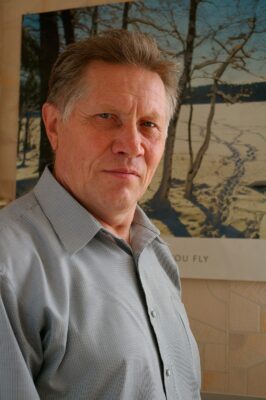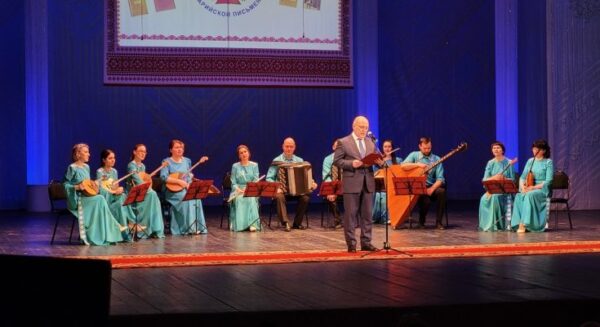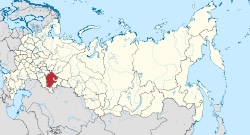Russian senator, president of AFUN Pyotr Tultayev: “Radical organisations are created in Europe acting in the name of Finno-Ugric peoples”
On 19 May, President of Russia Vladimir Putin held a session of the Council for Interethnic Relations, where the Russian state national policy strategy, the integration of the newly occupied regions into the socio-cultural space of Russia and changes in the national policy due to “external dangers and threats” were discussed.

Leading national policy experts of the Russian Federation, Duma deputies, senators (members of the upper house of the Duma) and leaders of national cultural autonomies took part in the session. Among the numerous speakers was also the president of the Association of Finno-Ugric Peoples of the Russian Federation (AFUN RF), Pyotr Tultayev, a Moksha, whose speech concerning the Finno-Ugric peoples we present to the readers.
Tultayev noted that now, when the USA and its allies, actively using the topic of nations, are openly talking about the dismantling of Russia, it is completely justified to talk about “protecting the most important value for Russia — harmony and unity between nations.”
For example, in the case of the Finno-Ugric peoples, “targeted activity in the discrediting of Russia’s state national policy” is seen “to incite nationalist sentiments”. According to Tultayev, “radical national organisations acting in the name of the Finno-Ugric peoples of Russia” are being created in Europe with the help of the USA and its allies and under the banner of democracy. Tultayev noted that at various international events, “accusations can be heard from the representatives of these self-proclaimed organisations of violations of the rights of our peoples, denial of the national factor in the personnel policy of the Finno-Ugric regions”. According to the senator, representatives of such organisations forget the fact that Russia is multi-ethnic and position themselves as fighters for the interests of compatriots in exile.
Tultajev refers to the Erzya congress that took place in Otepää on 30 September-1 October 2022: “Absolutely absurd things happen, like for example the so-called national people’s congress that took place in Estonia at the end of 2022, which brought together about 20 delegates – former Russians and now citizens of the USA, Ukraine, Estonia who have long forgotten their homeland. They hate and denigrate it.” Tultayev also accused that the Deputy Chancellor of the Ministry of Foreign Affairs of the Republic of Estonia and other representatives of the Estonian authorities took part in the event and that the Russian state power was blamed. According to Tultayev, the “former Russian citizens” present at the Erzya congress spoke about “a state to be created on a national basis, which should include the Republic of Mordovia, the Republic of Chuvashia, Penza and Ulyanovsk Oblasts, part of Nizhny Novgorod, Ryazan and Samara Oblasts” and that the current status of the regions was recognized as illegal.
According to Tultayev, there is a “Free Idel-Ural” project developed by the US and other Western countries, according to which independent national states must be created: Erzya-Moksha Federation, Chuvashia, Mari El, Tatarstan, Bashkortostan and Udmurtia. “The use of confessional factors to separate our peoples, to divide the centuries-long spiritual unity of the Russian and Finno-Ugric peoples, has not ended,” Tultayev noted.
In his speech, he rejoiced that “our peoples reject such thoughts and monstrous plans” and found that “the understanding and knowledge that has been proven for centuries prevails, that our homeland is Russia, one and indivisible.” Tultayev confirmed that “the Finno-Ugric peoples, their social organisations support you, Vladimir Vladimirovich, as the president in carrying out a special military operation and in other decisions protecting the sovereignty of our country.” Tultayev also noted that “due to excessive politicisation” of the World Congress of Finno-Ugric Peoples, the Association of Finno-Ugric Peoples (AFUN) considered further participation in the activities of the Congress inappropriate. He confirmed that the Finno-Ugric peoples of Russia and AFUN are open to international cooperation. “We are ready to maintain contacts with both social organisations and government institutions within the framework of various cultural and educational projects, but based on the respect and choices of our peoples and the national characteristics of the Russian Federation. Russia is unique in its multi-ethnicity, folk traditions and cultural richness.”
Pyotr Tultayev did not make a single request to the President of Russia to protect the languages and cultures of the Finno-Ugric peoples, not to mention their development. He presented only one proposal – to create a theatre in Moscow where theatre productions from different regions of Russia could be performed!
Tultayev thought that the theatre would be like a centre of theatrical art of all nations, where national theatres could give guest performances, doing so in many languages. At the same time, various exhibitions would be organised there and the museum of the peoples of Russia would also fit there, he suggested.
What did Vladimir Putin answer: he thanked and said, “as for the separation of the Russian and Finno-Ugric peoples, it is done by people who do not understand at all where they are and who they are. Slavic and Finno-Ugric tribes lived together even before the emergence of the centralised Russian state and the national formations of some Finno-Ugric peoples. This is fully confirmed by archaeological excavations which show that these tribes lived in harmony and peace. Traces of the habitats of the Finno-Ugric peoples can be found even south of present-day Moscow.”
Putin emphasised that this is why these attempts to divide the Russian and Finno-Ugric peoples have no basis and are doomed to failure. “It would be good for them to know that even the Mordvin people you mentioned, if I’m not mistaken, have five dialects, and the people who use these dialects don’t understand each other. In this sense, the Russian language is a natural language of communication both within one’s own nation and in communication between nations. Those who believe or think it can be otherwise are small-minded. It’s good that we have such opponents.”
He said nothing about the theatre.


